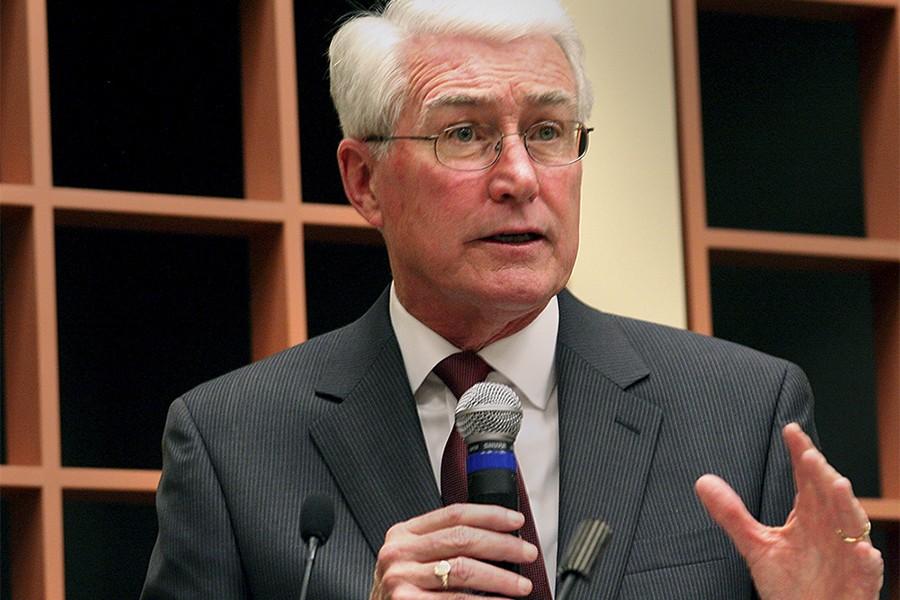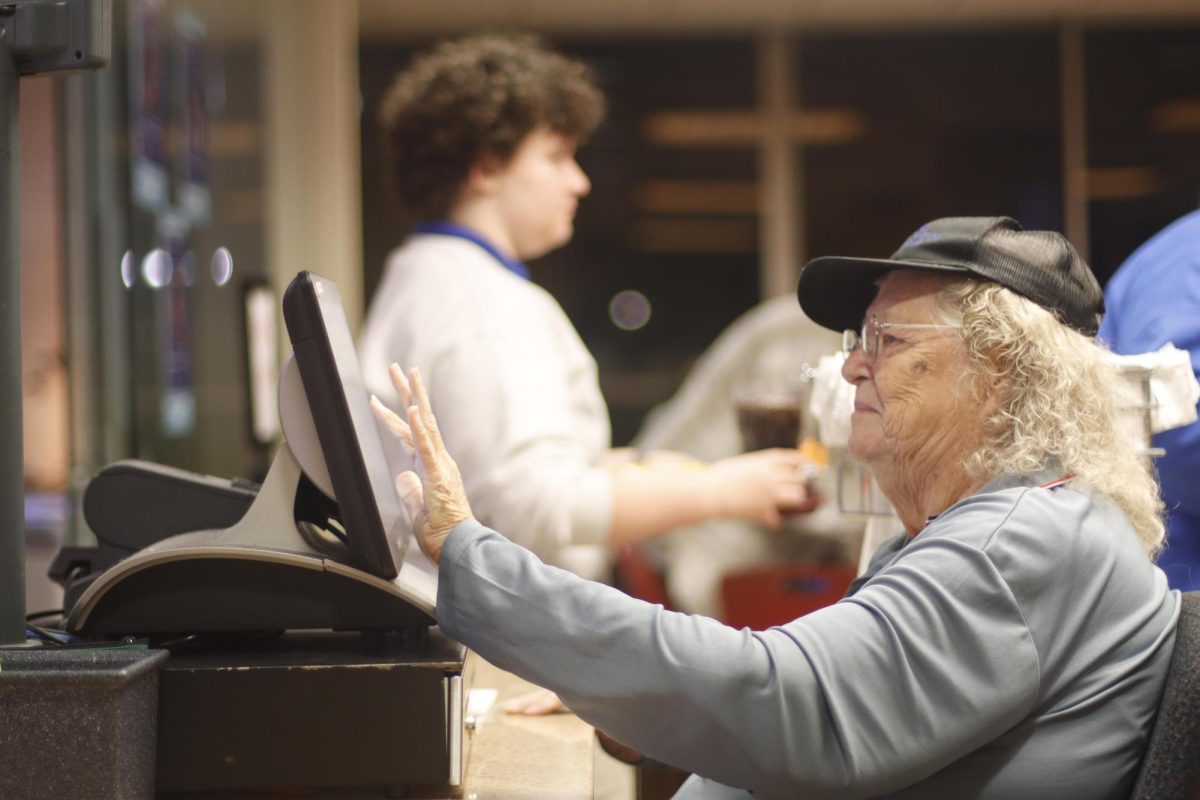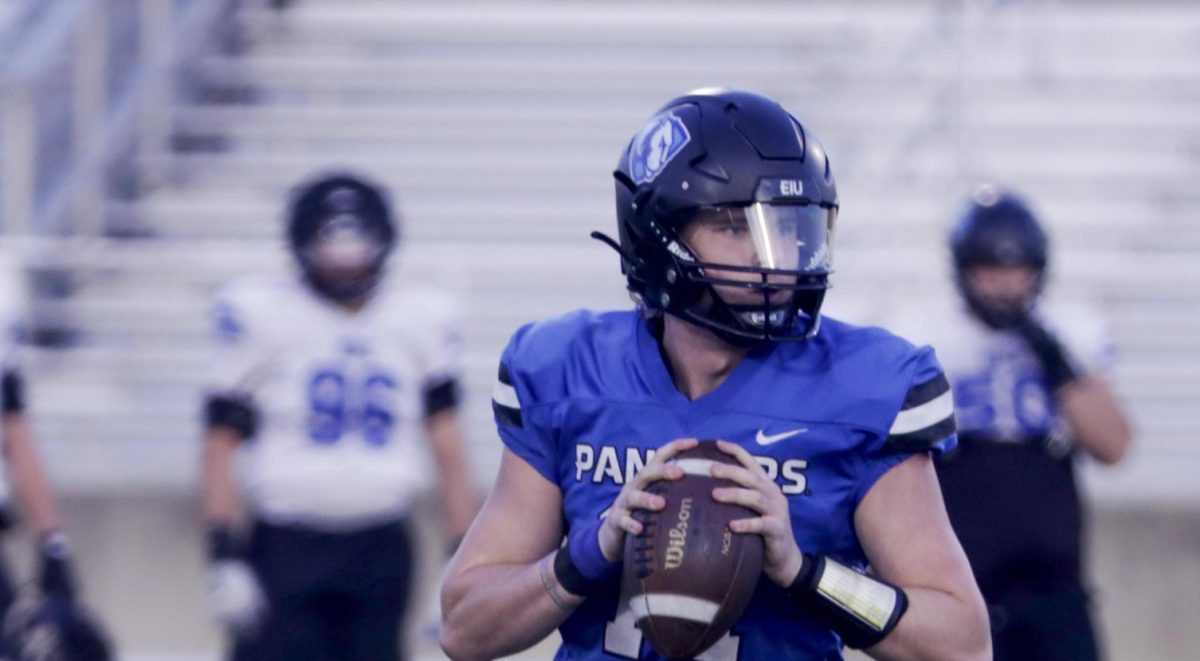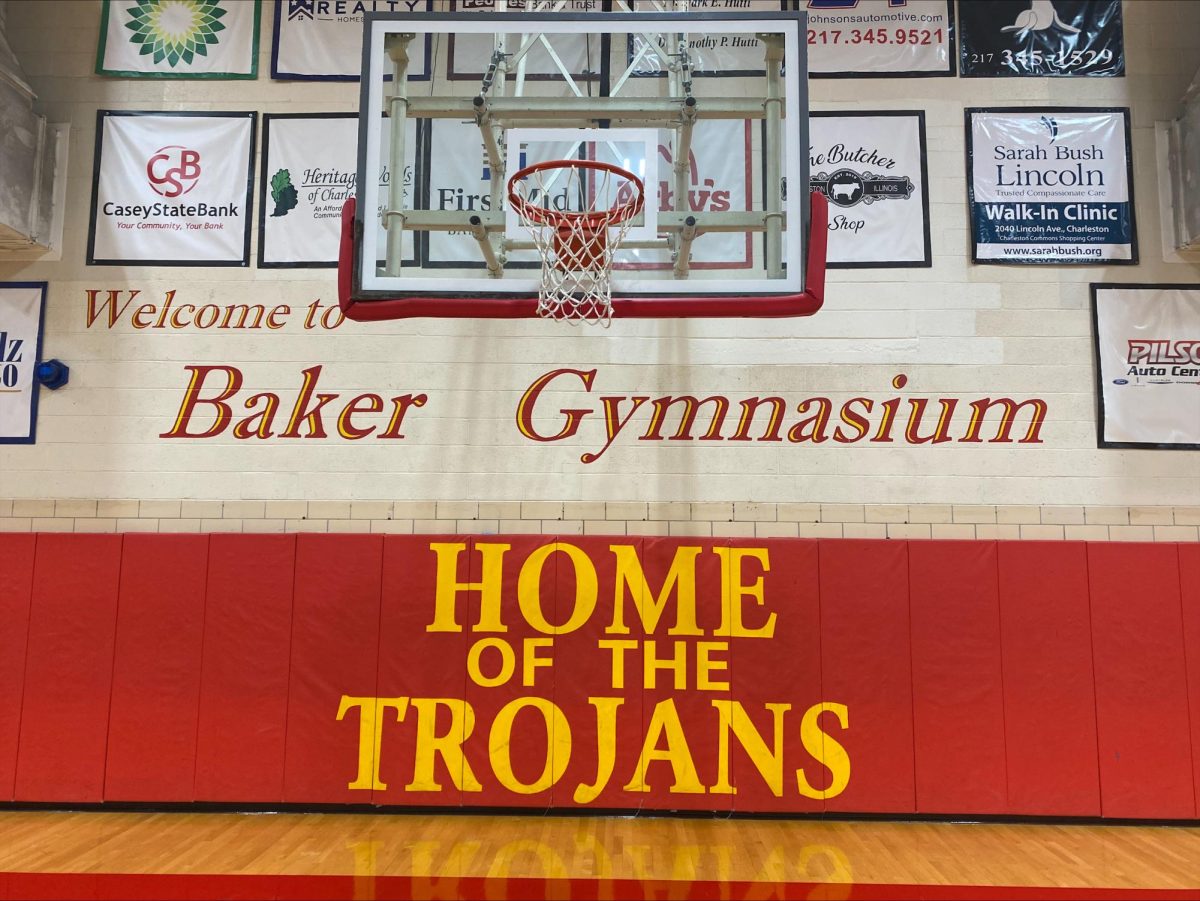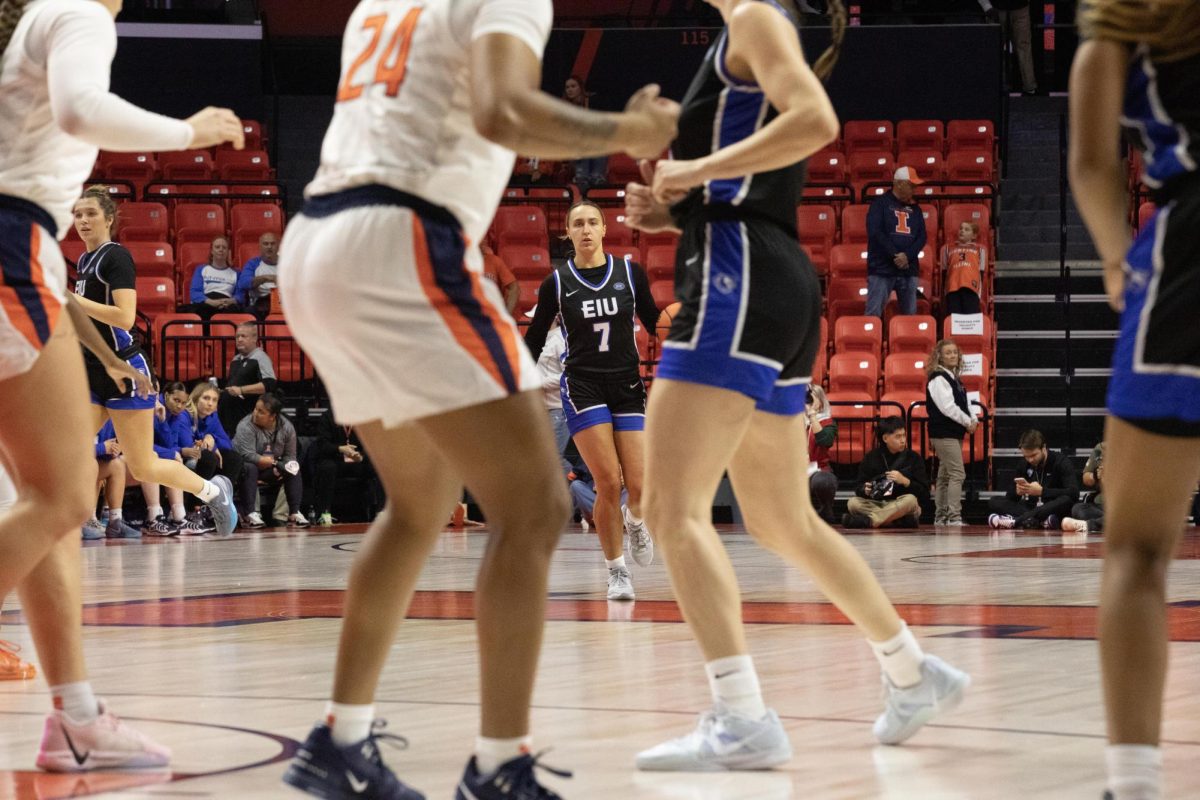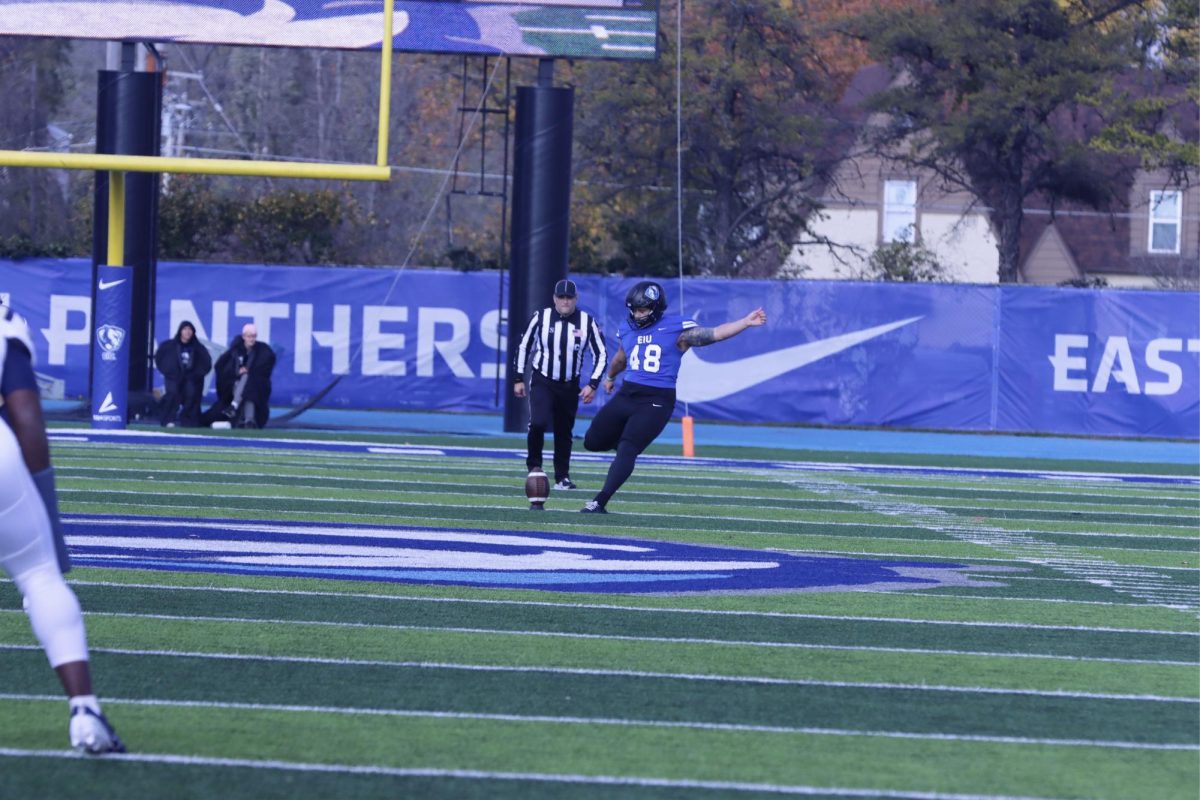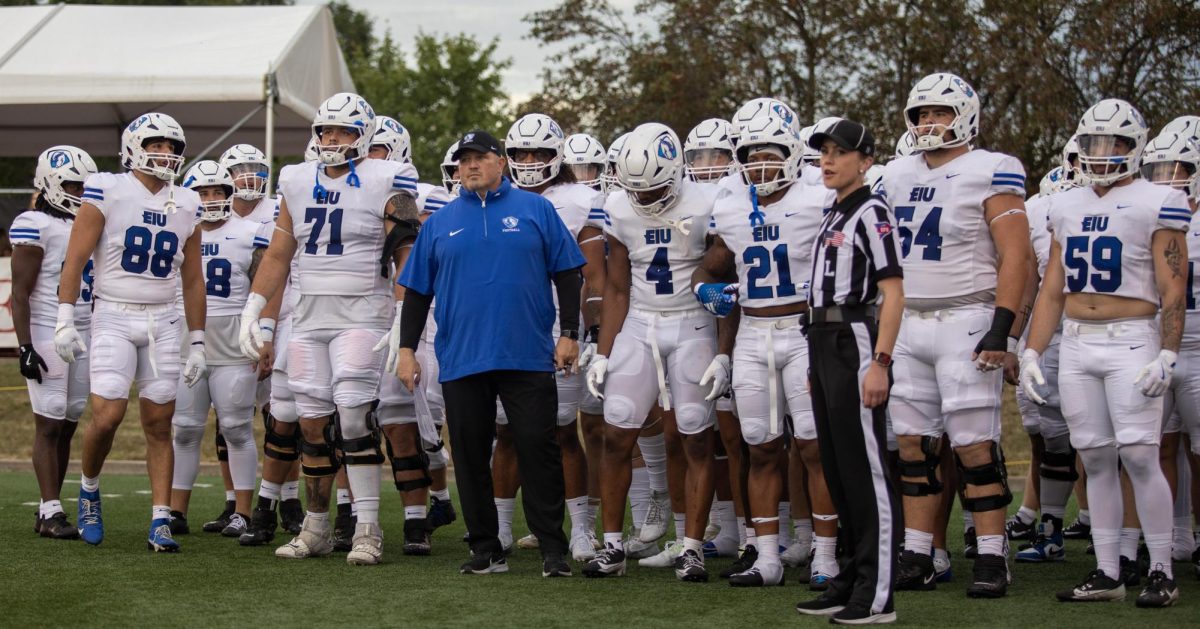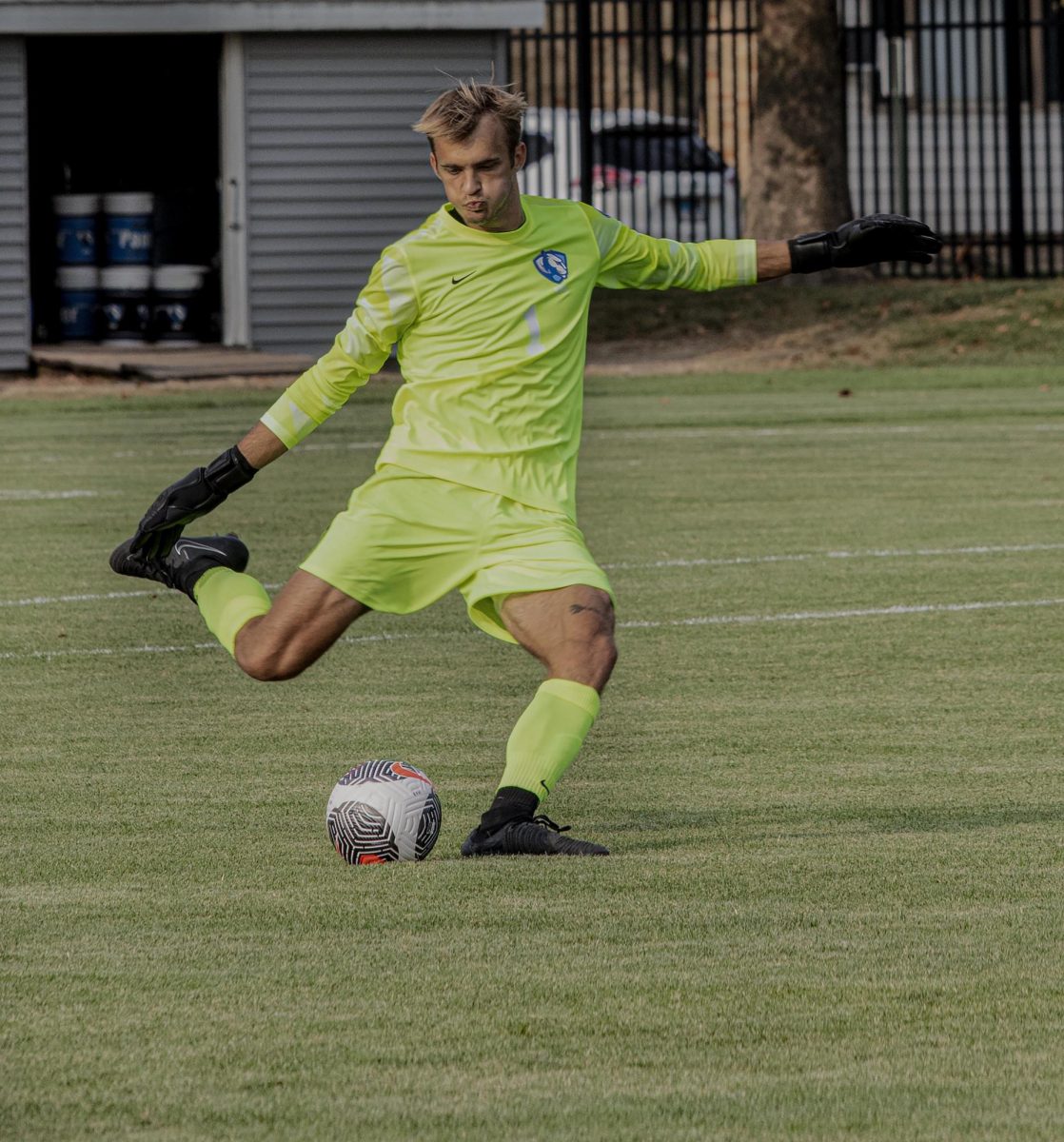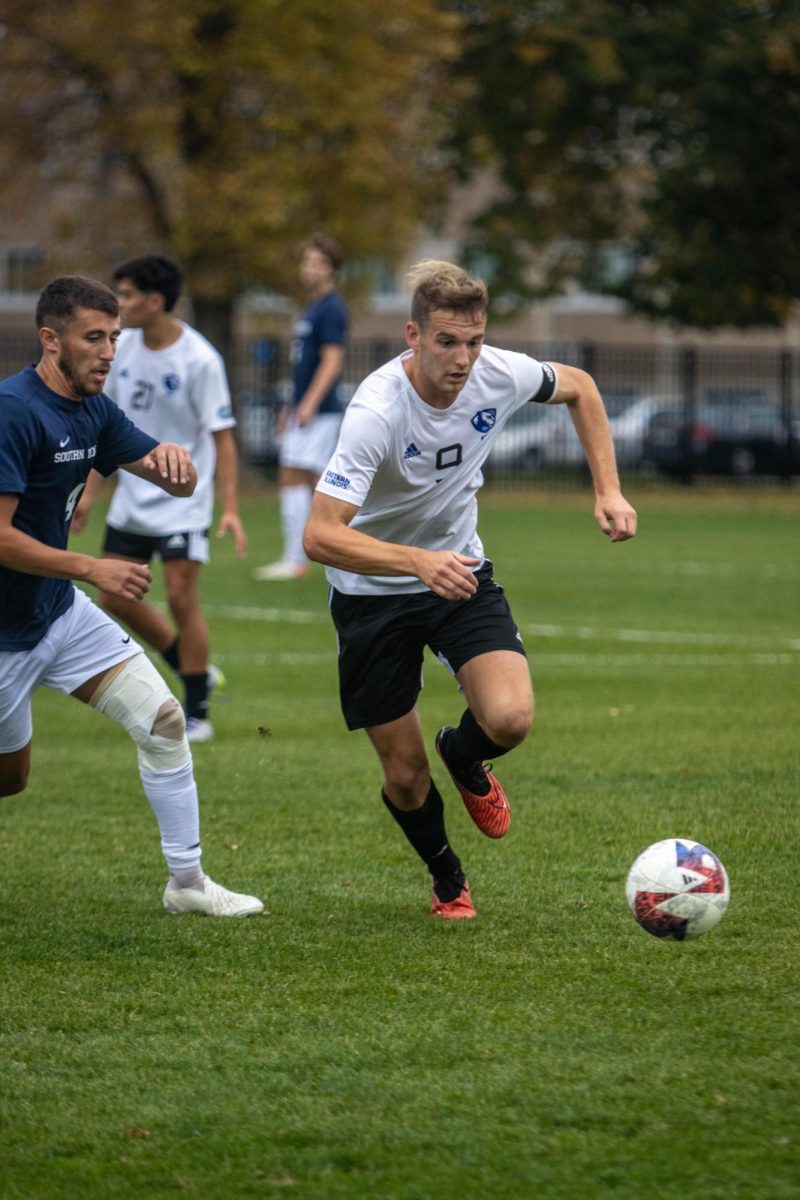Appellate Court visits Doudna for cases, questions
What is normally a hall of art and music became a hall of justice as the Illinois Appellate Court for the Fourth Judicial District held a civil and criminal case in the Recital Hall of the Doudna Fine Arts Center Thursday.
The Fourth District covers more than 30 counties stretching across Illinois, stretching from far west Adams and Pike counties all the way to Champaign, Vermillion, Coles and Edgar counties along the state’s eastern border.
Judges Thomas R. Appleton, Thomas M. Harris, Jr. and Lisa Holder White were on hand to preside over the civil case of Illinois County Treasurers’ Association v. Brian Hamer and Judy Baar Topinka, as well as the criminal case of People v. Bradley.
Hamer is the director of the Illinois Department of Revenue, and Baar Topinka the current state comptroller. She was formerly the state treasurer from 1995-2007. The civil case saw arguments that they did not receive stipends of $6,500 in 2010-11, which the state was unable to pay because of its financial woes.
The criminal case of People v. Bradley saw arguments in a case where the state made an agreement with Desean Bradley that it would drop weapon charges against him if he would testify against a co-defendant. However, the state later refilled charges against Bradley, and he objects.
Following the conclusion of the arguments, judges Appleton, Harris and Holder White participated in a question and answer session with students.
Holder White said there were positives to both.
“You have unique issues associated with each kind,” she said. “Sometimes you have a preference for what your background is or what your experience in. It’s like reading a really good new book every day. Every night, you get another case. It’s extremely interesting.”
Holder White, who first joined the Fourth District in January of 2013, serves on the Illinois Supreme Court Judicial Conference Committee on Education, which is in charge of planning and providing continuing judicial education for Illinois judges.
Appleton said the number of civil and criminal cases the court sees tends to fluctuate over time.
“When I first joined the appellate court in 2001, that was right in the middle of the growth of methamphetamine and we had so many meth cases, they were just coming out of our ears.”
The judges were also asked about whether or not they should ask questions during the trial.
Harris said he isn’t afraid to ask questions.
“Speaking for myself, if I thought something wasn’t coming out that they were missing a point, I would not hesitate to ask a question,” he said. “Lawyers hate that.”
However, in a jury trial, as compared to a bench trial, Harris said he tries not to ask questions, as not to influence the jury.
“If it was a jury trial, I wouldn’t ask any questions,” he said. “I wouldn’t want the jury to put any weight on the question I was asking. But a bench trial, the lawyers are trying their case directly to get a decision.”
Harris was assigned to the Appellate Court in January 2013.
Holder White agreed with Harris, saying judges don’t want to give the impression of any favoring.
“We have to make sure that we don’t give the impression that we are favoring one of the sides or making a determination before one of the sides,” she said. “If its clarification, I ask a question, but it always ties into the fact that the jurors are watching you, knowing what you say is important so you don’t want to give the impression that you’re trying to help one side or the other or that you think one side or the other is correct.”
Appleton said it is not about setting aside personal biases, but instead the court is only trying to determine the answer to the question: did they prove it or not?
“I think, at least on our court, we don’t have a lot of isms,” he said. “We’re all pretty much in the middle.”
Harris said he attributes his neutrality to years of practice and experience.
“I think experience and length of time in practicing law has helped me really confine myself to the laws of the case,” he said. “As lawyers, that’s what’s engrained in you, and as a judge, you decide that case only on facts that are presented to you and the laws.”
Holder White agreed, saying it does get easier.
“There are situations in which, for me anyway, that I read a brief and have a gut reaction, so to speak,” she said. “But out of love for and respect for the law, I have to understand, realize that it’s crucial that the law be followed.”
The judges also offered their advice for aspiring law students, with Harris emphasizing writing skills as very important.
“Work on your writing. Learn to write well,” he said. “Even if you don’t choose to become a lawyer, it will help you in life. Writing skills are essential.”
Holder White suggested students not just limit themselves to major in political science, saying those with degrees in English or even music could still become lawyers.
Appleton said getting good grades is very important for getting into law school.
“Being a lawyer is a very rewarding profession. You can help people; if you work hard, you can be successful,” he said. “I wouldn’t want to be anything else than a lawyer.”
Dominic Renzetti can be reached at 581-2812 or dcrenzetti@eiu.edu.




